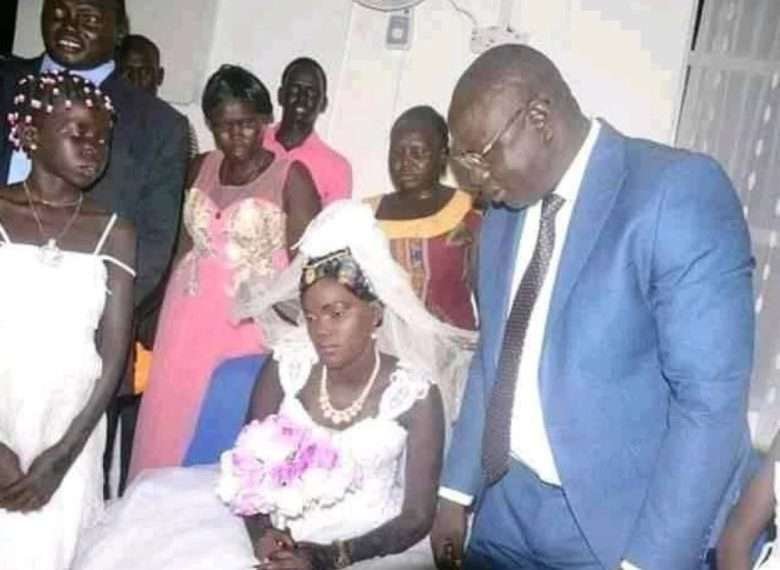The United Nations (UN), rights activists and opposition groups have slammed the practice of child marriage in Zimbabwe following the death of Memory Machaya, a 14-year-old girl during child birth at a church shrine.
The incident has sparked an outrage among citizens and rights activists who are agitating and calling on the government to crack the whip on those who contravene the constitution.
In a statement, the United Nations noted that child marriages continue to surface in Zimbabwe, where one out of three girls marry before the age of 18. They therefore, urged the government to recognize child marriage as a crime and bring an end to the practice.
The recent issue confirmed the practice of child marriage within Zimbabwe’s apostolic churches, which also allows polygamy. The apostolic churches in Zimbabwue also discourage followers from going to the hospital with the promise of healing them.
Dewa Mavhinga, a Human Rights Watch (HRW) director for Southern Africa also added his voice saying “Forcing any girl into marriage causes her untold suffering and long-lasting harm.”
Mr Dewa Mavhinga further denounced the practice stating that girls are often sexually abused, beaten by their husbands and in-laws, confined in their homes, forced into pregnancy and labour, exposed to serious reproductive health risk including risk of death as in the case of Memory Machaya.
Moreover, Mr Mavhinga revealed that he tried to speak with one of the deceased’s relatives but he was not willing to speak.
“I spoke to one of Memory’s distraught relatives, who said the family is under pressure from the church not to talk about the case. The family is demanding justice for Memory.”
Dewa Mavhinga
Since the incident, an online petition calling for justice for Memory has received more than 40,500 signatures indicating anger among the youths.
Regrettably, the teenage girl was offered through a practice referred to in the local Shona as ‘Chigara Mapfihwa’ to Evans Momberume, the ‘husband’ of the deceased. ‘Chigara Mapfihwa’ is a practice whereby a deceased woman’s sister moves in with the widower as a replacement for the wife.
Unsurprisingly, an apparent move by the deceased’s family to offer their second younger daughter (age nine) to their so called in-law to replace the deceased has further sparked an outrage to the gut-wrenching case that has erupted at an apostolic church in Marange, Manicaland province, bordering Mozambique.
Child marriages are rife especially among indigenous apostolic-cum-evangelical churches mixing Christian beliefs with traditional cultures.
Zimbabwe outlawed marriage for girls under the age of 18 in 2016 after a landmark 2016 Constitutional Court decision declaring child marriages as unconstitutional and setting 18 years as the minimum marriage age for girls and boys, without exceptions.
Nevertheless, the practice continued and has become more acceptable in poorer communities. In April 2021, the government reported a major increase in teenage pregnancies, with advocates blaming it on COVID-19 lockdowns and poverty. Nearly 5,000 teenage girls became pregnant between January and February 2021 and about 1,800 entered early marriages during the same period.
However, even in the face of the current happening and the protests, a member of the apostolic church is quoted as saying, “as soon as a girl reaches puberty, any man in the church can claim her for his wife.”
READ ALSO: ECA, Afreximbank, Africa CDC procure 158,400 J&J vaccines for Cameroon



















